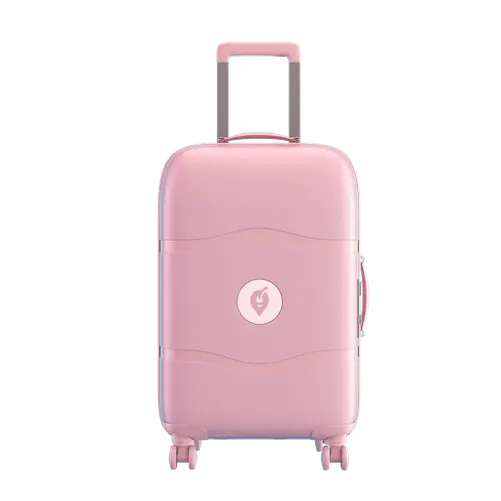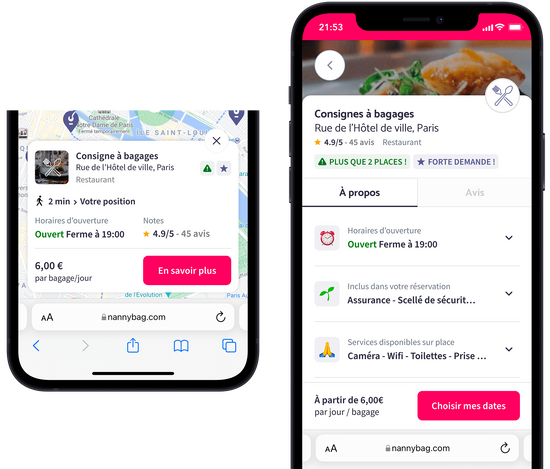Buenos Aires Travel Safety Rules You Should Absolutely Know

Buenos Aires, a city pulsating with tango rhythms and rich in cultural heritage, is a must-visit destination in South America. While it's an enchanting place, knowing how to navigate it safely is key to a fulfilling experience. This guide, laden with Argentina safety tips, is designed to ensure your memorable and secure trip. We'll cover everything from using public transportation to managing your money, equipping you with the necessary knowledge to travel safely and reduce your risk of encountering problems.
Whether you're weaving through the bustling streets, enjoying the vibrant nightlife, or exploring the city's historical landmarks, having well-informed travel plans and adhering to safety tips for travelers can significantly enhance your experience in Buenos Aires.
By staying aware of your surroundings, understanding local customs, and taking precautions with your belongings, you can navigate Buenos Aires with confidence and ease. Let this guide be your companion as you embark on an unforgettable journey through one of South America's most captivating cities.
Exploring Buenos Aires becomes much more enjoyable when you're not weighed down by luggage. To keep your bags safe while you wander and ensure you stay safe, consider using Buenos Aires overnight luggage storage services like Nannybag. This convenient solution lets you store your luggage securely, giving you the freedom to roam the city streets with ease.
When traveling light, you can move more freely and are less likely to be targeted by opportunistic thieves, which is important in a bustling city where petty thefts are more common than violent crimes. Additionally, when hailing a taxi, ensure it's a registered radio taxi, as a reputable taxi driver greatly reduces the risk of any safety issues during transit. With your belongings securely stored and knowing how to navigate the city safely, you can fully immerse yourself in the vibrant culture and experiences of Buenos Aires.
Public Transportation Tips
Exploring Buenos Aires via public transportation is cost-effective and allows you to experience the city like a local. The city's network of buses, subways, and trains can take you almost anywhere you need to go. However, as with any big city, it's essential to stay vigilant, especially in crowded buses or subway cars. Keep your belongings secure and close to your body, and consider using a money belt or a secure crossbody bag to safeguard your valuables.
Avoid displaying expensive gadgets or jewelry conspicuously. Always be aware of your surroundings, and if you feel uncomfortable, trust your instincts and move to a safer spot. Remember, blending in and being mindful can significantly minimize the risks of petty theft.
Credit Card Safety: Essential Travel Safety Tips
When traveling credit cards are invaluable for their convenience and security, but they also require careful handling to avoid fraud, which is a crucial aspect of travel safety tips. The risk of encountering counterfeit bills or falling prey to card skimmers at ATMs can be higher in unfamiliar environments. To mitigate these risks, always choose ATMs in well-lit, busy areas, ideally within bank premises, where crime rates are generally lower and security is tighter.
Be discreet when typing in your PIN, and stay alert for any unusual devices attached to the ATM, which could be a sign of skimming equipment. When paying at restaurants or shops, ensure that your card is always processed in your presence to avoid the risk of cloning or other fraudulent activities.
It's also wise to regularly monitor your account for suspicious transactions, a fundamental safety tip for travelers. This practice can help you quickly identify and address issues like unauthorized transactions or counterfeit bills charged to your account.
In rare cases, confrontations related to credit card fraud can turn violent. To avoid such situations, it's best to walk away and report the incident to your bank or local authorities from a safe location.
Lastly, always keep your bank's contact information readily accessible. Should your card be lost or stolen, or if you notice any strange account activity, immediate communication with your bank is essential to prevent further unauthorized use or financial loss.

Health and Travel Insurance
Health and travel insurance are crucial for any trip to Buenos Aires. This insurance can be a lifesaver in emergencies, accidents, or unexpected travel issues. Before your trip, ensure that your policy covers medical expenses, including hospital stays and emergency transport. Knowing the terms of your insurance and what it covers is essential.
Additionally, familiarize yourself with the healthcare system in Buenos Aires. Know where the nearest hospitals and clinics are for your accommodation. Keep a list of emergency numbers, including local ambulance and police, on your phone or in a small notebook. Remember, being prepared with the right insurance and information can provide peace of mind, allowing you to enjoy your Buenos Aires adventure to the fullest.
Staying Safe in Tourist Areas
While tourist areas in Buenos Aires, such as La Boca, Plaza Dorrego, and Puerto Madero, are must-visit spots due to their unique charm and cultural significance, they can also be hotspots for petty crime like pickpocketing or scams. Always be mindful of your surroundings to ensure a safe and enjoyable experience.
Keep your belongings close to you, particularly in crowded places, and consider using anti-theft bags or pouches. Avoid displaying expensive items like jewelry, cameras, or large sums of cash publicly. If you're using your phone or camera, be aware of who is around you. Stay in well-populated and well-lit areas, especially after dark, and avoid isolated streets or paths.
Taxi Travel – Go for Radio Taxis
In Buenos Aires, using radio taxis is the safest way to travel by cab. These taxis are easily identifiable by their company logo and registration number. Unlike unmarked or informal taxis, radio taxis are registered and monitored, significantly reducing the risk of scams or unsafe situations.
When you hail a taxi, ensure it's a radio taxi, and be wary of drivers who claim their meter is broken or suggest a fixed price without using it. It’s also advisable to have a rough idea of the route to your destination to prevent being taken on a longer, more expensive route. If you're staying at a hotel or eating at a restaurant, you can ask the staff to call a reliable taxi.
Counterfeit Currency and Petty Theft
One of the common issues in busy urban areas, including Buenos Aires, is the circulation of counterfeit currency. Be cautious when exchanging money; avoiding street exchangers and using official exchange bureaus or banks where transactions are regulated and safer is best. When receiving change, especially in busy places like markets or street vendors, take a moment to check the bills.
As for petty theft, it’s a risk in crowded public spaces like bus stations, markets, or busy streets. Keep your wallet, phone, and other valuables secure, such as a front pocket or a money belt. Be particularly vigilant in crowded areas or close quarters, like on public transport.
Avoiding Confrontations
When traveling in Buenos Aires, as in any major city, avoiding conflicts or confrontations is crucial. While Buenos Aires is generally a friendly city, disagreements or misunderstandings can sometimes occur. If you are in a situation that seems escalating, the best course of action is to walk away calmly.
Avoid engaging in heated debates or responding aggressively, as this could escalate the situation. Remember, your safety is paramount, and removing yourself from a tense situation is often the wisest decision.

Cultural Sensitivity and Local Laws
Respecting the local culture and adhering to local laws is essential when visiting Buenos Aires. Take time to familiarize yourself with Argentine customs and social norms to avoid inadvertently offending someone. This could include understanding dining etiquette, dressing appropriately for different occasions, or learning to greet people politely.
Being aware of local laws is also critical. For instance, there might be specific regulations regarding smoking in public places, alcohol consumption, or photography in certain areas. By being culturally sensitive and law-abiding, you'll enjoy a smoother travel experience and gain the locals' respect.
Emergency Preparedness
In any travel situation, being prepared for emergencies is important. Before you travel to Buenos Aires, note essential emergency contacts. This includes the local police, medical services, and contact information for your country's embassy or consulate in Argentina. Keeping these contacts readily accessible in your phone or in a small notebook can be crucial in an emergency.
Additionally, learning some basic Spanish phrases for emergencies can be incredibly helpful. Even simple phrases like asking for help or stating that you need a doctor can make a significant difference in urgent situations. It's also a good idea to have a basic first-aid kit and know the location of the nearest hospital or clinic to where you're staying.

Say hello to exploring and goodbye to heavy bags!
What if you could enjoy every minute in the city without the burden of your bags?
- Safe luggage storage for a flat daily price of 4,000.00 ARS/luggage item
- Included luggage protection of up to €10000 in case of breakage, loss or theft
